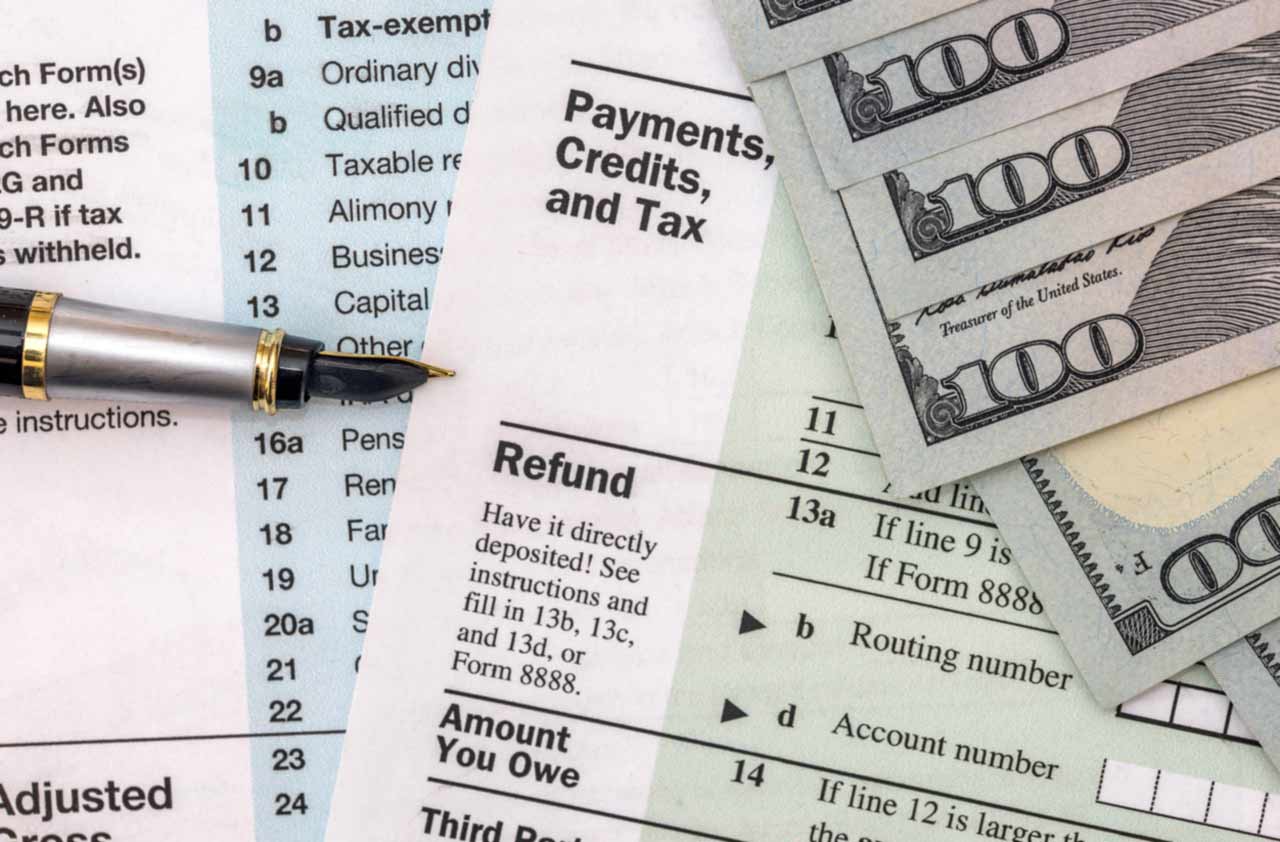Making Next Year's Taxes Less Painful
With 2016 taxes in the rearview mirror, it's time to take stock of some missed opportunities for next year that could save you money and headaches.


Profit and prosper with the best of Kiplinger's advice on investing, taxes, retirement, personal finance and much more. Delivered daily. Enter your email in the box and click Sign Me Up.
You are now subscribed
Your newsletter sign-up was successful
Want to add more newsletters?

Delivered daily
Kiplinger Today
Profit and prosper with the best of Kiplinger's advice on investing, taxes, retirement, personal finance and much more delivered daily. Smart money moves start here.

Sent five days a week
Kiplinger A Step Ahead
Get practical help to make better financial decisions in your everyday life, from spending to savings on top deals.

Delivered daily
Kiplinger Closing Bell
Get today's biggest financial and investing headlines delivered to your inbox every day the U.S. stock market is open.

Sent twice a week
Kiplinger Adviser Intel
Financial pros across the country share best practices and fresh tactics to preserve and grow your wealth.

Delivered weekly
Kiplinger Tax Tips
Trim your federal and state tax bills with practical tax-planning and tax-cutting strategies.

Sent twice a week
Kiplinger Retirement Tips
Your twice-a-week guide to planning and enjoying a financially secure and richly rewarding retirement

Sent bimonthly.
Kiplinger Adviser Angle
Insights for advisers, wealth managers and other financial professionals.

Sent twice a week
Kiplinger Investing Weekly
Your twice-a-week roundup of promising stocks, funds, companies and industries you should consider, ones you should avoid, and why.

Sent weekly for six weeks
Kiplinger Invest for Retirement
Your step-by-step six-part series on how to invest for retirement, from devising a successful strategy to exactly which investments to choose.
Ah, tax time. The one time each year when we are all forced to look our finances in the face. Rarely fun.
From my perspective, tax returns are a wonderful view into a person’s life. Your tax return will tell me not just the obvious things, like how much money you make, but also if you sold a bunch of company stock, if you have kids, if you’re saving for retirement, if you have a rental property. It won’t tell me your favorite food or the last book you read, but when it comes to things that affect your financial life, it’s the holy grail.
Is it really any surprise, then, that doing your taxes is stressful, confusing and overwhelming? To do your taxes, you have to delve into almost every part of your financial life.
From just $107.88 $24.99 for Kiplinger Personal Finance
Become a smarter, better informed investor. Subscribe from just $107.88 $24.99, plus get up to 4 Special Issues

Sign up for Kiplinger’s Free Newsletters
Profit and prosper with the best of expert advice on investing, taxes, retirement, personal finance and more - straight to your e-mail.
Profit and prosper with the best of expert advice - straight to your e-mail.
And now that your 2016 tax ordeal is over (or, at least it should be!), you probably have several ways to make your 2017 tax experience less horrible. Much like the rest of your financial life, planning for your taxes makes the whole experience so much better, both financially and emotionally.
Yes, You DO Your Taxes. But Do You PLAN Your Taxes?
By the time January rolls around, your tax situation is largely fixed for the previous calendar year. Your income is what it is, you have bought and sold investments, you made your charitable donations, and so on.
There are a few things you can do retroactively to improve the previous year’s tax situation, like contributing to your IRA and Health Spending Account (HSA). You might also undo (reverse or “recharacterize”) a conversion of a traditional IRA to a Roth IRA.
But most of the tax benefits you can get are going to be the result of advance planning, not last-minute catch-up. Here are some of the major kinds of tax planning that you might benefit from going forward for 2017:
RETIREMENT SAVING
I’m talking about 401(k)s or other employer plans. Yes, IRAs are a possible retirement savings vehicle, but they’re often not as good as a 401(k). Their contribution limits are much lower — IRA contributions are capped at $5,500 per year for those under 50 ($6,500 for those 50 and up) vs. 401(k)s, which are capped at $18,000 for those under 50 ($24,000 for those 50 and up). And IRAs face income limits on either eligibility or tax deductibility. Plus, unlike with 401(k)s, there’s often no easy way to set up automatic paycheck deduction for IRAs.
However, while you can contribute to an IRA up until the tax-filing deadline (which in 2018 will be on April 17) and still have it count for the previous year’s taxes, you have to finish contributing to your 401(k) by Dec. 31. So, ideally, you would look ahead during 2017 to figure out how much you can, how much you need to, and how much you should contribute to your 401(k) in 2018.
GETTING OR REFINANCING A MORTGAGE
If you have a home mortgage, you had to make the decision about buying points (you prepay a bunch of money in the year of purchase, to lower the ongoing interest rate). You can deduct the money you spent on points in full in the year you pay them, if you meet a variety of IRS requirements.
Some years are going to make that itemized deduction more worthwhile than others. If, say, you’re selling a bunch of company stock, at a gain, you’re going to drive your income up. Which means itemized deductions are worth even more. So, if you’re also buying a home in the same year, that makes buying points more worthwhile.
DONATING TO CHARITY
Do you give to charity? Or want to? There might be some significant tax savings there, while not diminishing the help you provide to charities.
- If you usually give cash, consider donating “appreciated assets,” investments that have grown a lot in value, instead. If you have a bunch of company stock, start there. You can still get the itemized deduction, just as you would with a cash donation, but you also avoid the tax bill you’d otherwise pay if you sold that investment.
- Does your income change from year to year? Was your income high this year because your company stock went gonzo? Or was it low because your start-up laid you off and you spent months looking for a new job? Consider concentrating your charitable contributions in high-income years, because the itemized deduction will be worth more.
HEAVY CONCENTRATION IN (COMPANY) STOCK
Many of my tech-industry clients have a lot of their financial worth tied up in a single stock, their company stock, which they’ve passively acquired over the years through stock options, Restricted Stock Units, employee stock purchase plans and so on. This is really risky.
Lowering that risk is often Priority No. 1, taxes be damned. But because selling that stock can bring with it a big tax bill, it’s worthwhile to map out a plan for getting rid of those shares. You can make a schedule for selling them that spreads the taxes out over a few years, donating them or even giving them away.
FLEXIBLE SPENDING ACCOUNTS
Flexible Spending Accounts are a good employee benefit that I hope you have available to you. You put pretax dollars into an FSA (the IRS limits for 2017 are $2,600 for health care and $5,000 for dependent care), and you can use that pretax money to pay for medical expenses or dependent care.
You have to decide on your contribution to an FSA in the previous tax year. So, for tax year 2018, you will need to choose your FSA contribution level during open enrollment, which for many people will be in the fall. On top of that, FSA contributions are use-it-or-lose it: Whatever money you don’t spend by the end of 2018 (or possibly up through March 2019), you forfeit. So, watch your medical and dependent care expenses carefully throughout 2017 to help determine what to put in your FSA for 2018.
FREELANCE/CONSULTING INCOME
If you run side hustles, doing freelance or consulting work, that side income is usually simply added on top of your full-time job salary. Having a higher income can kick you into a higher tax bracket, can make you ineligible for certain deductions or credits, and generally make your tax situation worse. (Let’s keep in mind that, overall, you’re better off the more money you make.)
But if you can control the timing of your income, you have more control over your tax bracket, deductions and credits. If you made a lot of money this year through salary, commission or investments, maybe you can delay your side-hustle income until the next tax year, or accelerate your expenses. Or, consider doing the reverse, if you know next year is going to be a higher-income year. But you have to make those decisions before Dec. 31.
Do You Need an Accountant or a Financial Planner?
I’ve spoken with some folks lately who have only the vaguest inkling of the kind of help they need. They know their taxes make them sad and discomfited. But do they need a tax preparer, or do they need a financial planner?
An accountant can be a powerful financial partner. Indeed, most of my clients work with an accountant in addition to working with me. However, taxes are only one part of your financial life. Sometimes they can be the most important consideration, but usually they’re simply one part that you have to balance with all the others.
The more complex your total financial life, the more you need a professional who deals with that totality, not just one part. If you have children or other dependents, inheritances, rental real estate, company equity, robust employee benefits, fluctuating income and so on … you’d benefit from working with a professional who will look at all of these things in coordination with one another. And one who works with an accountant on your behalf? Even better!
Profit and prosper with the best of Kiplinger's advice on investing, taxes, retirement, personal finance and much more. Delivered daily. Enter your email in the box and click Sign Me Up.

Meg Bartelt, CFP®, MSFP, is the president of Flow Financial Planning, LLC, a fee-only virtual firm that provides financial guidance to women in tech. She is a member of the XY Planning Network.
-
 5 Vince Lombardi Quotes Retirees Should Live By
5 Vince Lombardi Quotes Retirees Should Live ByThe iconic football coach's philosophy can help retirees win at the game of life.
-
 The $200,000 Olympic 'Pension' is a Retirement Game-Changer for Team USA
The $200,000 Olympic 'Pension' is a Retirement Game-Changer for Team USAThe donation by financier Ross Stevens is meant to be a "retirement program" for Team USA Olympic and Paralympic athletes.
-
 10 Cheapest Places to Live in Colorado
10 Cheapest Places to Live in ColoradoProperty Tax Looking for a cozy cabin near the slopes? These Colorado counties combine reasonable house prices with the state's lowest property tax bills.
-
 Don't Bury Your Kids in Taxes: How to Position Your Investments to Help Create More Wealth for Them
Don't Bury Your Kids in Taxes: How to Position Your Investments to Help Create More Wealth for ThemTo minimize your heirs' tax burden, focus on aligning your investment account types and assets with your estate plan, and pay attention to the impact of RMDs.
-
 Are You 'Too Old' to Benefit From an Annuity?
Are You 'Too Old' to Benefit From an Annuity?Probably not, even if you're in your 70s or 80s, but it depends on your circumstances and the kind of annuity you're considering.
-
 In Your 50s and Seeing Retirement in the Distance? What You Do Now Can Make a Significant Impact
In Your 50s and Seeing Retirement in the Distance? What You Do Now Can Make a Significant ImpactThis is the perfect time to assess whether your retirement planning is on track and determine what steps you need to take if it's not.
-
 Your Retirement Isn't Set in Stone, But It Can Be a Work of Art
Your Retirement Isn't Set in Stone, But It Can Be a Work of ArtSetting and forgetting your retirement plan will make it hard to cope with life's challenges. Instead, consider redrawing and refining your plan as you go.
-
 The Bear Market Protocol: 3 Strategies to Consider in a Down Market
The Bear Market Protocol: 3 Strategies to Consider in a Down MarketThe Bear Market Protocol: 3 Strategies for a Down Market From buying the dip to strategic Roth conversions, there are several ways to use a bear market to your advantage — once you get over the fear factor.
-
 For the 2% Club, the Guardrails Approach and the 4% Rule Do Not Work: Here's What Works Instead
For the 2% Club, the Guardrails Approach and the 4% Rule Do Not Work: Here's What Works InsteadFor retirees with a pension, traditional withdrawal rules could be too restrictive. You need a tailored income plan that is much more flexible and realistic.
-
 Retiring Next Year? Now Is the Time to Start Designing What Your Retirement Will Look Like
Retiring Next Year? Now Is the Time to Start Designing What Your Retirement Will Look LikeThis is when you should be shifting your focus from growing your portfolio to designing an income and tax strategy that aligns your resources with your purpose.
-
 I'm a Financial Planner: This Layered Approach for Your Retirement Money Can Help Lower Your Stress
I'm a Financial Planner: This Layered Approach for Your Retirement Money Can Help Lower Your StressTo be confident about retirement, consider building a safety net by dividing assets into distinct layers and establishing a regular review process. Here's how.